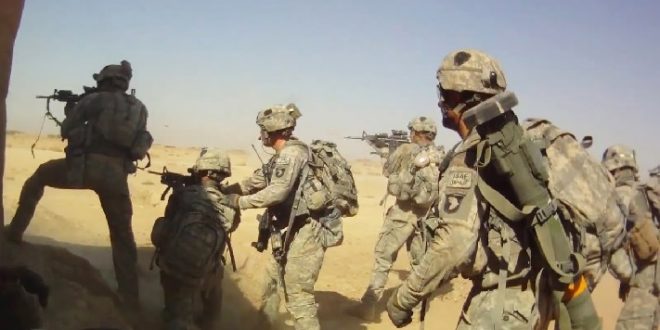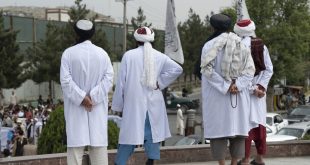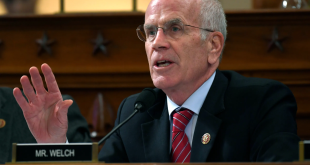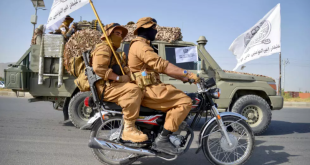Ambassador Khalilzad says aid to Afghanistan could be cut if women’s rights aren’t upheld
AT Monitoring Desk
KABUL: US Special Envoy for Afghanistan Reconciliation, Zalmay Khalilzad testified before the Senate Foreign Relations Committee on US policy in Afghanistan where lawmakers questioned him about how Afghan women will be protected if Taliban takes control after American troops leave the country.
“How we withdraw and what political arrangement is left in our wake matters deeply,” US Senate Foreign Relations Committee Chairman Bob Menendez said. “If the Taliban were to come back to power, the reality for Afghanistan’s women and girls, I think, would be devastating.”
Menendez said that he doesn’t “believe under any circumstances that the United States Senate will support assistance for Afghanistan, especially under the World Bank’s program which provides budget support, if the Taliban has taken a governing role that ends civil society advances and rolls back women’s rights.”
But Khalilzad said any future support of a government that included the Taliban would be conditional.
“If they do want US assistance, they want international acceptance … those things will be all affected by how they treat their own citizens, first and foremost the women of Afghanistan, children and minorities,” Khalilzad told the senators.
“We should all remain concerned that those rights could suffer,” he said.
Asked if the US would keep any leverage to protect those rights once its troops are gone, Khalilzad said aid and other types of diplomatic support “would be not available if they did not respect the human rights of Afghan women or others.”
Senator Jim Risch said the US military withdrawal should proceed only with safeguards for the gains the US has made in Afghanistan.
“I have deep concerns about the administration’s rush for the exits in Afghanistan,” Risch said. “I hope I’m wrong, but I’m concerned that the administration’s decision may result in a Taliban offensive that topples the government.”
But Khalilzad said that he doesn’t “believe the (Afghan) government is going to collapse or the Taliban is going to take over.”
“The choice that the Afghans face is between a negotiated political settlement or a long war,” he added.
Khalilzad echoed President Biden and other administration officials in saying the US would remain committed to Afghanistan and its development and human rights gains made since 2001 despite the withdrawal.
“That opportunity is once again confronting them and it’s up to them,” Khalilzad said, adding that the “terrorism” threat that led to the 2001 attacks has now moved to other regions.
Shortly before he spoke, the State Department said it had instructed all personnel to depart unless their jobs require them to be physically located in Afghanistan.
US Charge d’affaires Ross Wilson said the departure order was issued “due to increasing violence and threat reports,” would affect only a relatively small number of employees, and there would be no reduction in services offered.
Wilson said it “ensures that American diplomacy and support for Afghanistan will be sustainable, robust, and effective.”
 Afghanistan Times
Afghanistan Times




